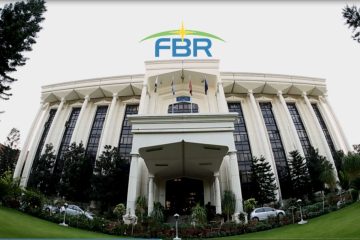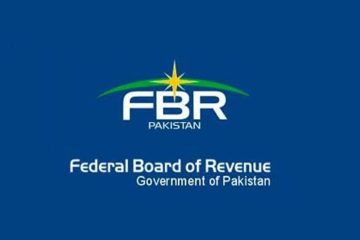Pakistan’s State Bank of Pakistan (SBP) has cast doubt on the recent reports of impressive revenue collection growth by the Federal Board of Revenue (FBR). The SBP’s skepticism stems from the significant inflation and depreciation of the Pakistani Rupee (PKR) witnessed in the same period.
The doubt is highlighted in the SBP’s latest half-yearly report on the Pakistani economy. The report acknowledges a surge in tax revenue by 29.5% in the first half of FY24 (compared to 16.9% in H1-FY23). However, it raises a red flag when considering the backdrop of 28.8% inflation and a 22.3% depreciation of the PKR during the same period.
The SBP report argues that this growth might not be as impressive when adjusted for inflation. The report emphasizes that real terms tax collection might not have grown significantly.
FBR’s Reported Growth
The FBR reported exceeding its H1-FY24 target by Rs 1,040 billion. Direct taxes, constituting nearly half of the total collection in H1-FY24, witnessed robust growth. This marks the highest share of direct taxes collected in the last 25 years.
Strong performances were observed in voluntary tax payments (corporate advance taxes) and withholding taxes (bank interest, securities, contracts, salaries, and imports). Indirect taxes also saw a significant rise (12.2%) in H1-FY24, driven by higher sales tax and Federal Excise Duty (FED) collections.
SBP’s Concerns
The SBP’s concerns arise from the interplay of various economic factors. The depreciation of the PKR, along with elevated inflation and interest rates, might have inflated the tax collection figures.
For instance, the depreciation of the PKR might have resulted in higher import-related tax revenue despite a decrease in import volumes. Similarly, the high-interest rate environment could have boosted bank profits and individual interest earnings, leading to increased tax collection.
The Need for Sustainable Growth
Despite the seemingly impressive figures, the SBP emphasizes the need for sustainable tax collection growth. This is crucial for Pakistan’s economic stability and development, especially considering the current economic challenges.
The SBP’s assessment highlights the importance of prudent fiscal management and well-coordinated policies to navigate Pakistan’s economic landscape in the coming months.






